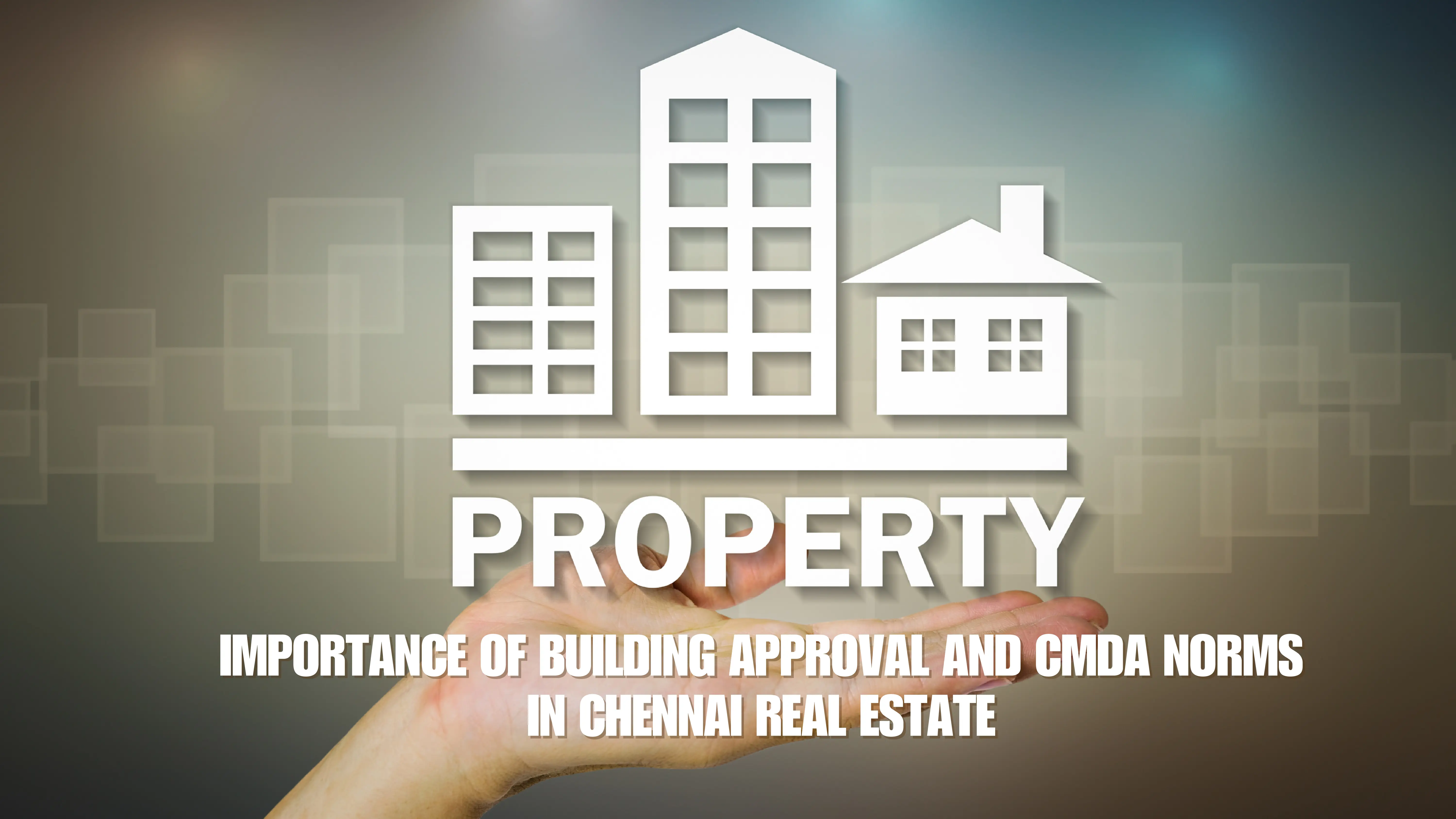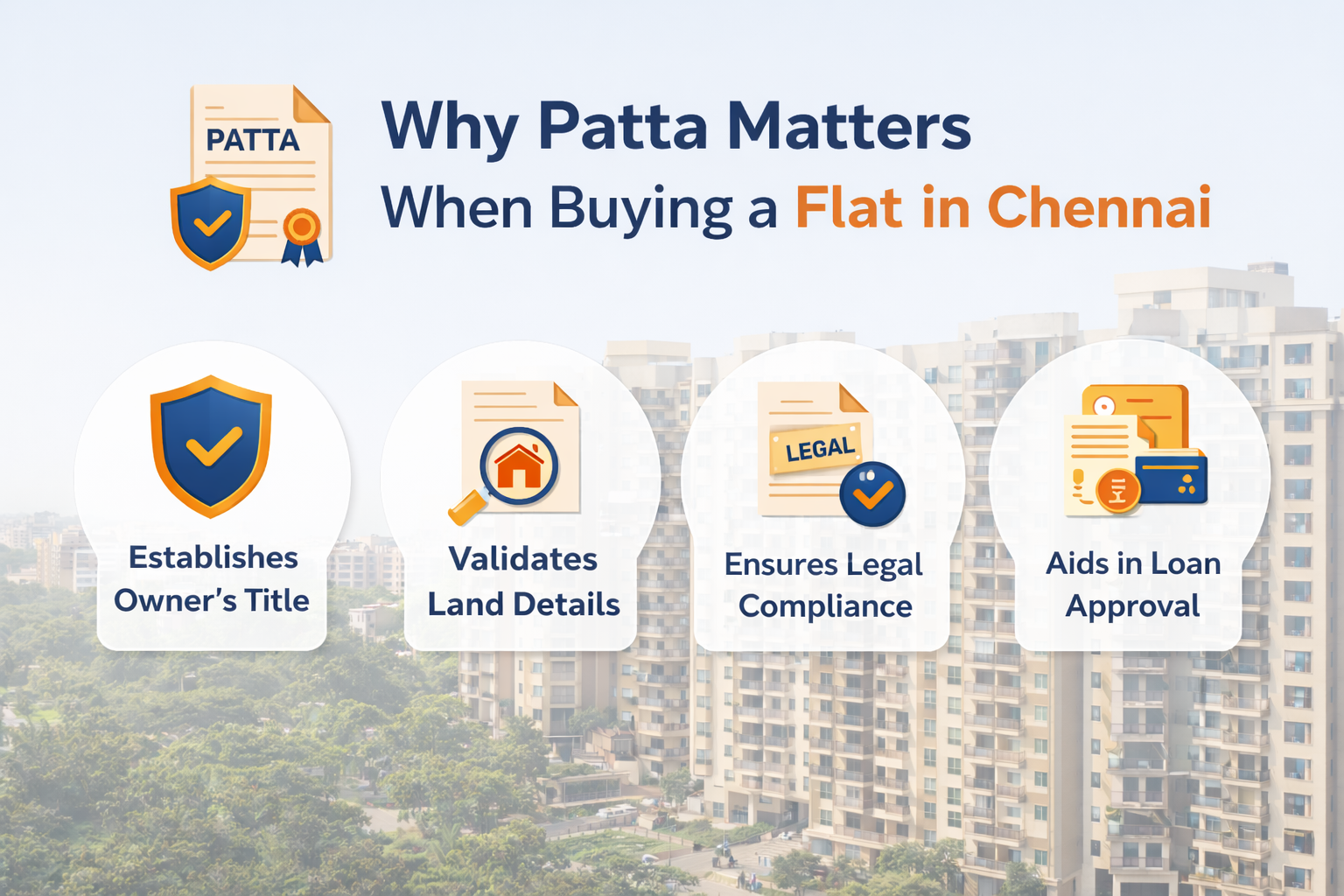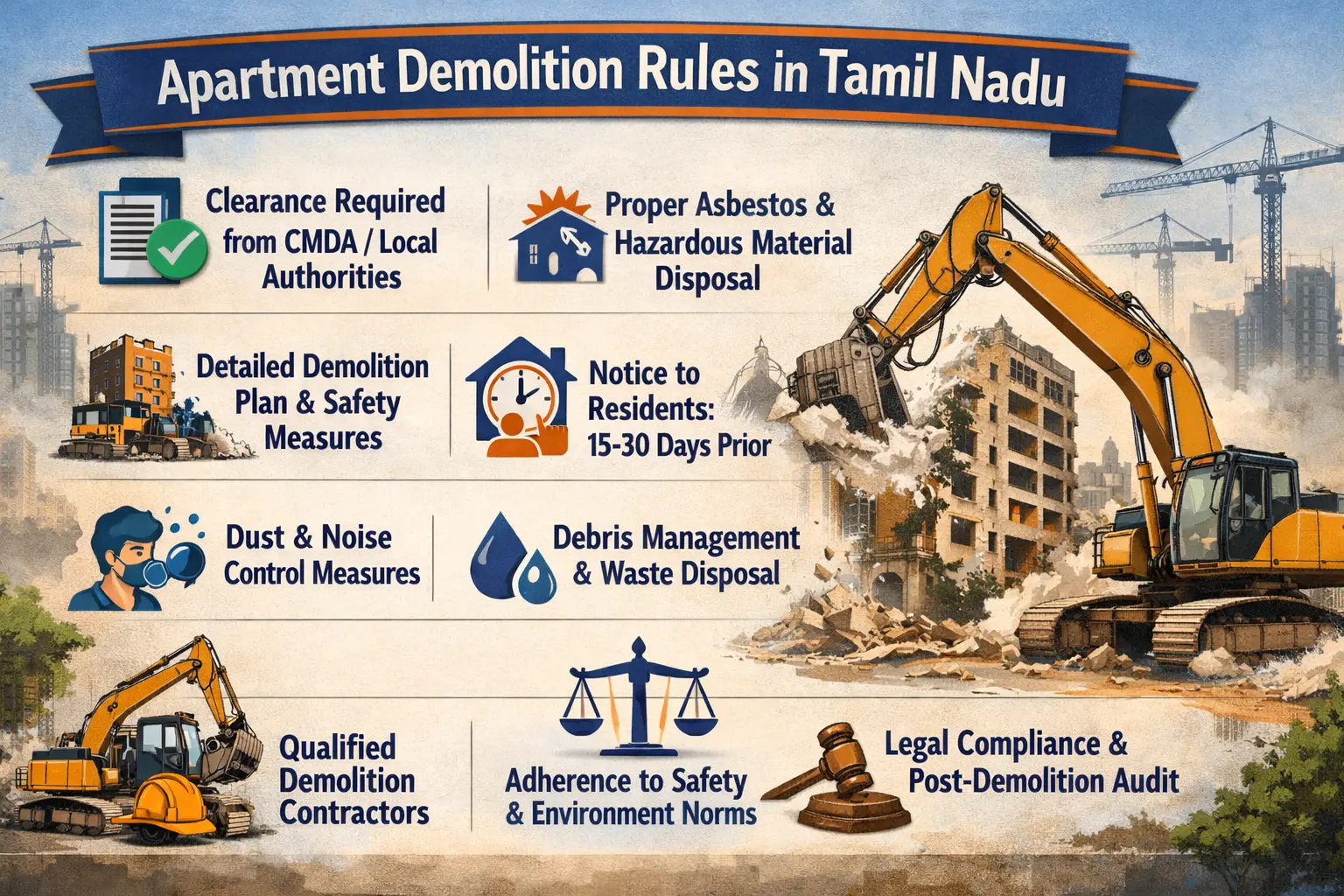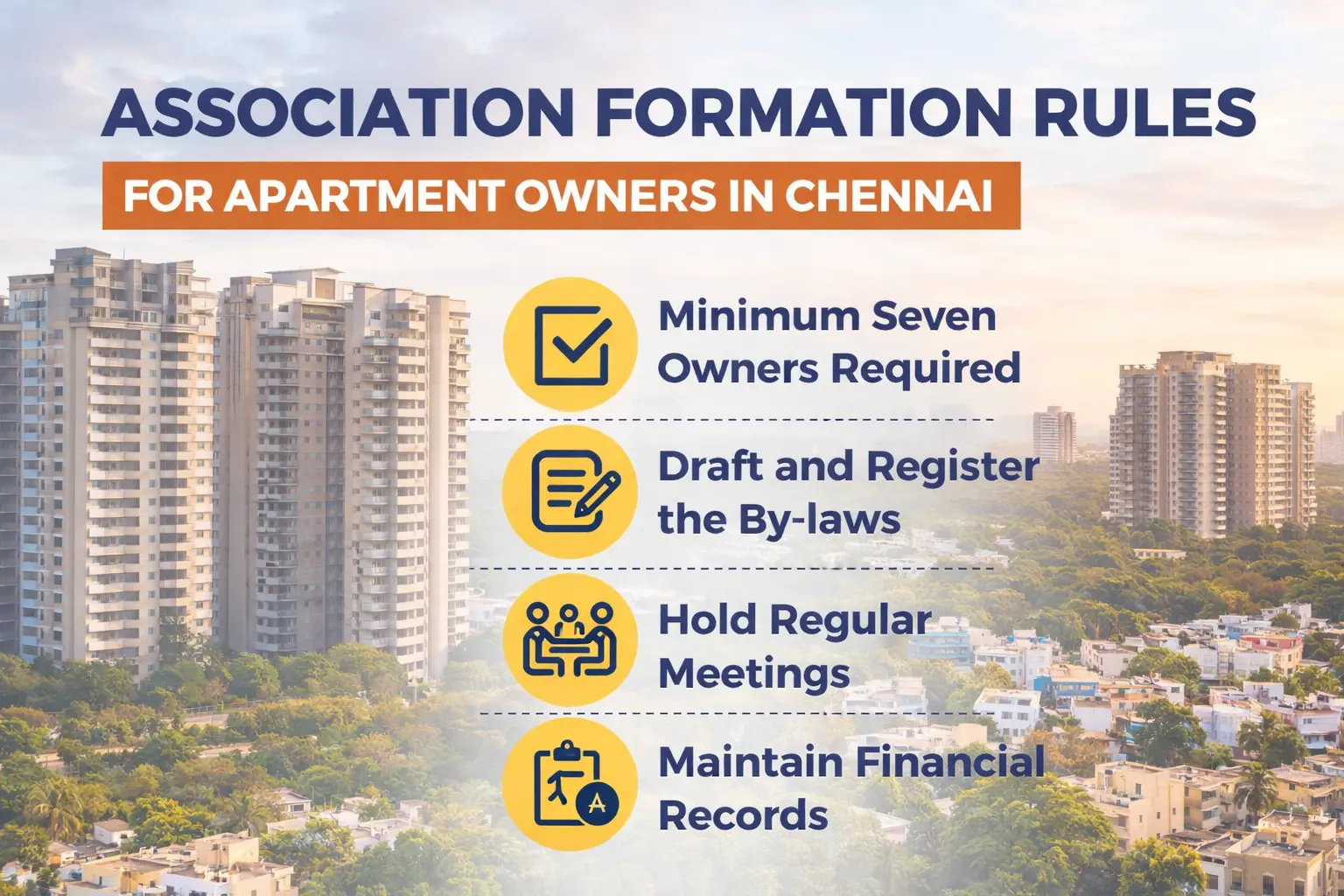1. Introduction
Chennai, the capital of Tamil Nadu, is one of India’s largest metropolitan cities with a fast-growing real estate market. As urbanization accelerates, ensuring that construction follows proper norms is crucial for safety, aesthetics, and sustainable city development. This is where building approvals and CMDA (Chennai Metropolitan Development Authority) norms come into play.
2. What is Building Approval?
Building approval refers to the legal permission granted by the municipal authorities or the CMDA to construct, renovate, or extend a building. It ensures that the proposed construction complies with local building regulations, safety standards, and zoning laws.
Key Components of Building Approval:
- Structural Safety: Ensures that the building design is structurally sound.
- Zoning Compliance: Confirms that the land use (residential, commercial, industrial) aligns with city planning rules.
- Environmental and Safety Norms: Checks fire safety, drainage, water supply, and environmental impact.
- Building Plan Approval: Sanctioning of detailed architectural and structural plans by the authorities.
Legal Requirement:
- Constructing a building without approval is illegal.
- Developers may face demolition notices, penalties, or legal action if approvals are bypassed.
- Buyers investing in unapproved projects risk loss of property value or legal complications.
3. What is CMDA?
CMDA (Chennai Metropolitan Development Authority) is the statutory planning authority for Chennai and its metropolitan region. It was formed in 1974 under the Tamil Nadu Town and Country Planning Act, 1971.
Functions of CMDA:
- Urban Planning: Preparation of master plans for land use, roads, and urban infrastructure.
- Building Regulation: Sanctioning building plans according to city planning norms.
- Zoning Enforcement: Ensuring areas are used according to designated purposes (residential, commercial, industrial, recreational, etc.).
- Development Control: Monitoring ongoing construction for compliance with approved plans.
- Environment Protection: Ensuring construction does not negatively impact ecology, water bodies, or open spaces.
Read Also: What is Difference Between CMDA and DTCP Project in Chennai
4. Importance of CMDA Norms in Real Estate
CMDA norms are a set of rules and regulations that developers must adhere to when constructing buildings in Chennai. These norms govern land use, building height, floor area ratio, setbacks, and more.
Major Norms Include:
- Floor Area Ratio (FAR) / Floor Space Index (FSI):
- Defines the maximum permissible floor area in relation to the plot size.
- Controls building density and prevents overcrowding.
- Setback Requirements:
- Minimum distance to be maintained from plot boundaries.
- Ensures proper ventilation, light, and safety.
- Building Height Restrictions:
- Regulated based on location and plot size to maintain city skyline and infrastructure feasibility.
- Parking Norms:
- Specifies minimum parking spaces for residential and commercial buildings.
- Open Space Requirements:
- Ensures green spaces, parks, and community areas.
- Land Use Zoning:
- Designates areas for residential, commercial, industrial, or mixed-use.
- Environmental and Safety Regulations:
- Protection of water bodies, proper sewage disposal, fire safety, and disaster management.
5. Benefits of Building Approval and Adhering to CMDA Norms
For Buyers:
- Legal Security: Ownership of a property with approved plans ensures legal protection.
- Resale Value: Approved properties are easier to sell or rent.
- Loan & Mortgage Eligibility: Banks and financial institutions sanction loans only for approved properties.
- Safety & Quality Assurance: Compliance with safety and structural norms reduces risk of accidents.
For Developers:
- Smooth Project Execution: Avoids legal hassles and project delays.
- Credibility: Boosts buyer confidence and market reputation.
- Financial Security: Facilitates bank loans and investment opportunities.
For the City:
- Planned Development: Prevents haphazard growth and maintains infrastructure efficiency.
- Environmental Sustainability: Protects water bodies, green areas, and reduces urban flooding.
- Improved Infrastructure Management: Ensures adequate roads, sewage, and public utilities.
6. Consequences of Non-Compliance
Ignoring building approvals or CMDA norms can lead to:
- Legal Action:
- Demolition of unauthorized construction.
- Heavy fines and penalties.
- Court cases and property disputes.
- Financial Loss:
- Unapproved properties are difficult to sell or mortgage.
- Buyers may lose their investment if the property is deemed illegal.
- Safety Risks:
- Non-compliant buildings may have structural flaws, fire hazards, or drainage issues.
- Urban Planning Disruption:
- Leads to overcrowding, traffic congestion, waterlogging, and strain on public services.
7. Building Approval Process in Chennai
Step-by-Step Process:
- Application Submission:
- Developers submit a detailed building plan to CMDA or local municipal authority.
- Document Verification:
- Required documents: land title, site plan, architectural drawings, structural drawings, environmental clearance (if applicable).
- Plan Scrutiny:
- CMDA verifies compliance with FAR, setbacks, land use, and safety norms.
- Approval or Modification:
- Plans are either approved, or the applicant is asked to make corrections.
- Construction Compliance:
- During construction, authorities may conduct inspections to ensure adherence to approved plans.
- Completion Certificate (CC):
- Issued after construction is complete and verified.
- Required for property registration and occupation.
8. CMDA Guidelines for Buyers in Chennai
When buying property in Chennai, it’s essential to check:
- CMDA-approved Layout:
- Ensure the plot or project is sanctioned by CMDA.
- Building Plan Sanction:
- Verify that the developer has obtained approval before construction.
- Compliance Certificates:
- Check if the project adheres to all CMDA norms like FSI, setbacks, and height restrictions.
- Legal Verification:
- Confirm land title, zoning, and absence of legal disputes.
9. Conclusion
Building approval and CMDA norms are critical pillars of real estate development in Chennai. They:
- Protect buyers from illegal constructions.
- Ensure developers follow legal and safety standards.
- Promote planned urban growth and environmental sustainability.
- Preserve the city's infrastructure, aesthetics, and livability.
https://www.livehomes.in/blogs













